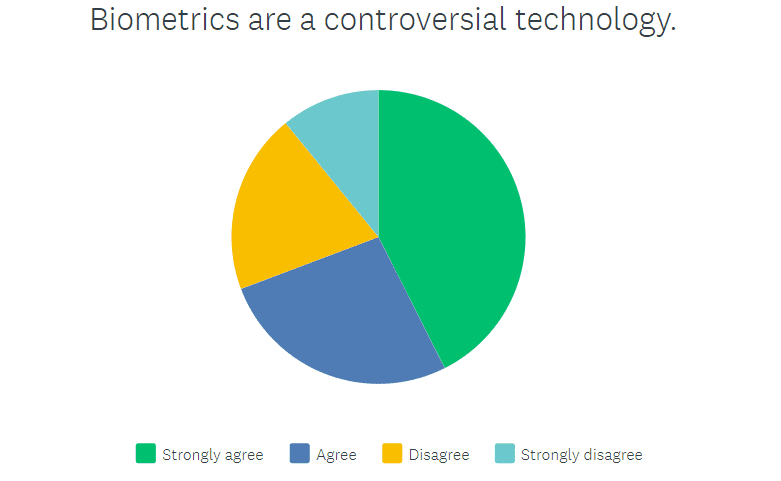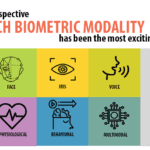Over the past several weeks, we’ve been breaking down the results of the annual FindBiometrics Year in Review survey, identifying prominent trends, pressing challenges, and changing perceptions in the biometrics industry. Now, we’re concluding our analysis with a look at what has in the past been a controversial topic: the question of whether biometric technology is itself controversial.
In our 2019 survey, the question turned out to be divisive. Responding to the prompt, “Biometrics are a controversial technology,” 54 percent agreed, with 12 percent strongly agreeing, while 46 percent disagreed, with 10 percent indicating that they strongly disagree.
Things have taken a fairly decisive turn in the most recent responses to this question. The same prompt in the 2020 Year in Review found 69.3 percent of respondents in agreement that biometrics are indeed a controversial technology, with a majority of 42.6 percent saying that they strongly agree. Those who strongly disagreed with the statement, meanwhile, comprised the smallest minority of respondents, at about 10.9 percent.

It’s a striking change in a year that has arguably seen biometrics become even more mainstream than ever. As discussed earlier this week in our look at the anticipated death of the password, there is some evidence that people tend to get more comfortable with biometric technology the more they use it. And the COVID-19 pandemic saw a whole lot more people engaging with biometric onboarding and authentication technologies after being pushed into digital channels due to lockdown restrictions and social distancing measures. With so many people getting more comfortable with biometrics, one would think that this technology category would appear less controversial than ever.
That having been said, there has been one area of ongoing controversy over the past year – the use of facial recognition in surveillance. This blew up as a major issue in the U.S. a few years ago, with privacy and civil rights advocates raising concerns about the technology’s potential intrusiveness, and disparities in accuracy with respect to different ethnicities and genders – disparities that can have tangible, negative real world consequences. In 2020, such controversies resulted in multiple state- and municipal-level bans and restrictions concerning facial recognition.
Meanwhile, the year saw a couple of disturbing reports come out concerning China’s use of face-based biometric technologies. Perhaps the worst was from The Washington Post, which reported that Huawei and Megvii had worked together on a system that included a feature enabling it to racially profile Uighur Muslims, who comprise a minority group that has been harshly repressed by the authoritarian government.
And then there’s Clearview AI, the infamous tech firm that built a facial recognition platform to trawl the internet, including social media accounts. The company continued to generate headlines in 2020 as it became the subject of lawsuits, cancelled contracts, and continued to raise millions in funding. The company made a lot of headlines in mainstream media outlets, potentially tarnishing the broader image of biometric facial recogntion.
It’s because of these kinds of controversies that so many biometrics experts are now making strong efforts to distinguish between biometric authentication and biometric surveillance, as detailed in a Year in Review feature last week. And it helps to explain why so many respondents now see biometrics as a controversial technology, even as the technology grows more and more mainstream and familiar to consumers.
*
The 2020 FindBiometrics Year in Review is made possible by our sponsors: Aware, BioConnect, FacePhi, Innovatrics, Jumio, NEC Corporation of America, and Onfido.
–
February 25, 2021 – by Alex Perala








Follow Us